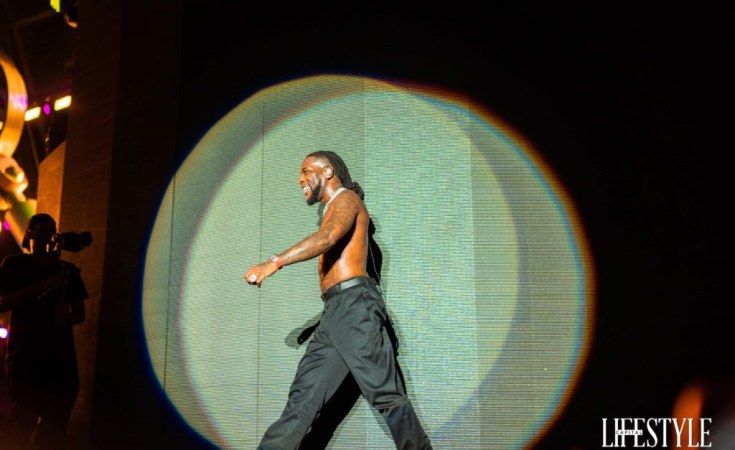Recording Academy CEO Harvey Mason Jr. announced during a press conference in Ghana that the institution is considering adding an Afrobeats category to next year's 65th Annual Grammy Awards. But will they get it right?
In a video shared by Nigerian chart analytics platform and magazine TurnTable Charts, Recording Academy CEO Harvey Mason Jr said he and other executives, "just had a meeting literally about six or seven days ago with leaders from the Afrobeats community... We had a virtual listening session where we heard from Afrobeats creators and just talked about 'What are the different subgenres? What are the needs? What are the desires?'" he adds. "And my goal is to represent all genres of music, including Afrobeats, at the Grammys."
Of course, the category name should it stick could be deemed problematic. Afrobeat(s) not be confused with Afrobeat (a musical genre created by Nigerian musician Fela Kuti that fuses funk, jazz, highlife, and traditional African music) is a catch-all term for pop music from Nigeria and Ghana. As pop music from West Africa gains popularity around the world, the term 'Afrobeats' has become synonymous with popular African music. But even the musicians who would generally be under this umbrella, like Burna Boy and Davido, prefer to call their music Afro-fusion or Afro-pop. Let alone the multitudes that would not even scratch the loosest definition of such a category.
He did go on to clarify that the decision is not yet final. "I don't decide categories," he explains. "The categories are decided by proposals submitted by members. The members can say 'Harvey, I want an Afrobeat category... ' So that process has started now. I think the listening session last week was very important, very valuable, and a the step towards that path."
An example of how long it takes for categories to become official is when at an April 2021 meeting, the Recording Academy approved the addition of two new categories in the global and Latin music fields, however, the change did not affect the 2022 Grammys.
Additionally, the Recording Academy announced five additional categories this year, including songwriter of the year and best score soundtrack for video games and other interactive media, which will only take effect at the 2023 Grammys.
Despite the effort to more concretely recognise and award African music, it is worrying that the Academy may not have a clear understanding of what Afrobeats encompasses and is using it (as the rest of the world is) regardless of region, base characteristics, stylistic markers, or cultural context. Except they as the 'leading community of music professionals' should know better.
An article on the institution's website states, "The global explosion of Afrobeats has since helped build an important bridge connecting African music genres with American audiences, specifically Black Americans." It goes on to list "five African genres adjacent to Afrobeats" which they say are Ndombolo (where they feature AliKiba who is known for bongo), Afroswing/ Afrobashment (a UK-born derivative of Afrobeat and dancehall), Soukous and Amapiano (a new sub-genre of South African deep house which is always evolving). If the article is anything to go by, then the academy should take time and resources to create a category that correctly summarises the vibrancy and nuance of popular African music.
Diversity and Evolution- a community-driven and peer-reviewed annual membership cycle
As the Academy's top brass pointed out, the inclusion of non-traditional categories, genres, and artists is dependent on membership. These creatives and musicians are not only representative of the evolving musical landscape but have the unique opportunity to create a lasting impact on the global music community.
As part of his annual address to the organisation's membership body, he drew focus on how the 2022 New Member Class showed the organisation's continued progress toward cultivating a community that embodies the ethnicities, genres, and crafts that power the music industry.
"After years of listening, learning, and putting in the work, we're beginning to see results of our efforts to diversify the Academy's membership come to life," he Mason Jr. "Our members are the lifeblood of this organisation, powering everything we do from the inside out. When we have diverse people representing all corners of the industry contributing unique perspectives, progress is achieved at a rapid pace. The journey is just beginning, and I can't wait to work alongside our new and existing members to build on the Academy's commitment to effecting real, meaningful change."
He reported that of the invitees that accepted their membership invite, 44 percent are from traditionally underrepresented communities, 47 percent are under the age of 40, 32 percent are women, and 52 percent are male (the remaining 16 percent are comprised of individuals who identify as non-binary or chose to not disclose gender).
Follow This Is Africa on Twitter and Facebook to join the conversation.


